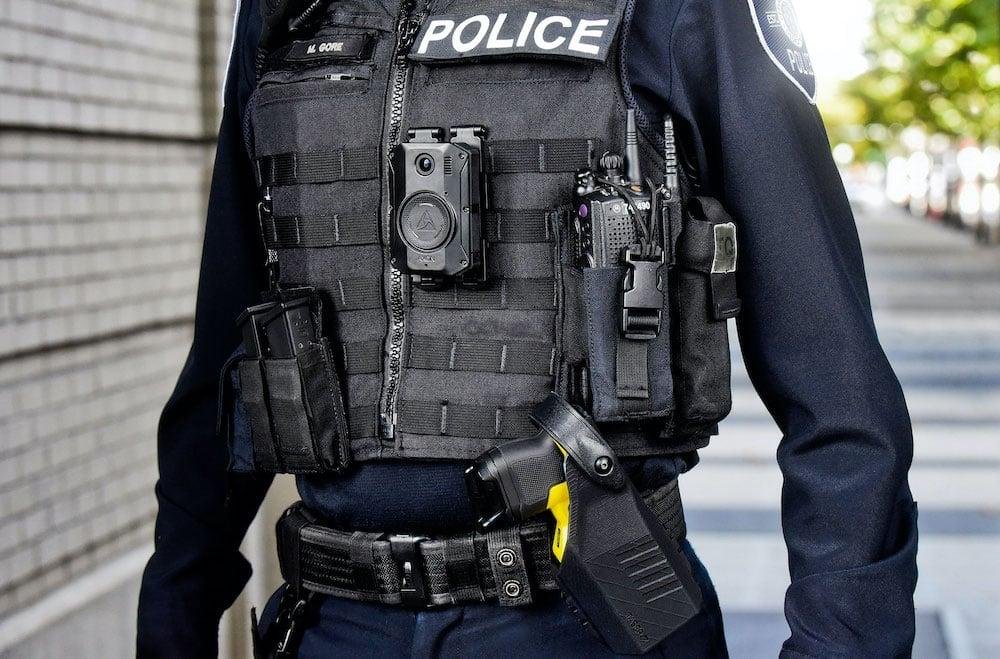arizona
New Law Sparks Controversy with High Fees for Police Body Camera Footage

Advocates for public records are voicing concerns over an Arizona law that permits police departments to impose substantial hourly fees for reviewing body-worn camera footage. Critics argue that this practice is leading to excessive charges for citizens and may even violate legal standards.
The law, championed by Republican state Senator John Kavanagh, aims to deter frivolous requests by implementing a one-time fee of $46 for every hour of video reviewed in response to public records requests. Kavanagh contends that the intent behind the legislation is to ensure fair reimbursement for taxpayers and to alleviate the burden on law enforcement agencies that process these requests.
This measure, enacted in June 2023, has resulted in varying fee implementations across the state. An investigation by the Arizona Mirror reveals that some local police departments are charging fees that may be deemed abusive, with invoices for footage reaching well over a thousand dollars in some cases.
“We anticipated that steep fees would arise from this change,” said Jared Keenan, legal director at the ACLU of Arizona, highlighting that the costs can escalate rapidly. Kavanagh, however, argues that citizens who request video footage should bear the associated costs rather than the average taxpayer.
Kavanagh cited that expenses needed for video processing and redaction had become considerable, hence the rationale for introducing these fees. He pointed to the Phoenix Police Department’s staffing issues and delayed responses to requests as justifications for the law, though a recent U.S. Department of Justice report refuted this claim, suggesting a lack of transparency instead.
While cities like Phoenix have opted for lower fees—charging $4 plus a possible refund of a $5 deposit—other agencies charge the full $46 or just below it. The Tucson Police Department, for instance, charges $44 per hour. Additional fees, such as charges for digital storage or upfront deposits, are also common, raising alarms among public records advocates.
Keenan voiced concerns that such practices could deter individuals from seeking accountability from law enforcement. He remarked that while larger organizations may manage the financial burden, average citizens—especially families of police violence victims—may struggle against these steep fees.
The law, reminiscent of prior legislation allowing the Arizona Department of Public Safety to levy similar charges, has resulted in widespread discrepancies in how charges are applied across different agencies. Of the 25 agencies responding to fee inquiries, 11 impose the maximum rate, while various localities engage in supplementary charging practices.
As local governments grapple with an influx of public records requests, concerns mount regarding the high costs associated with the law. Many agencies report their administrative burdens are compounded by numerous requests, often driven by issues like culture wars or elections.
While no legal challenges have emerged regarding the law as of yet, opinions differ on its implications. Democratic Senator Anna Hernandez expressed that the focus should shift towards enhancing accessibility rather than creating barriers, particularly for families impacted by police violence. She emphasized the need for transparency, echoing sentiments shared by advocates highlighting the legislation’s contradictory nature to the original goals of implementing body-worn cameras.
Keenan asserted that rather than achieving accountability and public trust, the fees undermine the very principles that led to the adoption of body-worn cameras. “The public’s push for transparency arose from concerns over police integrity,” he stated, pointing out the need for reforms that ensure public access to footage without exorbitant costs.

















